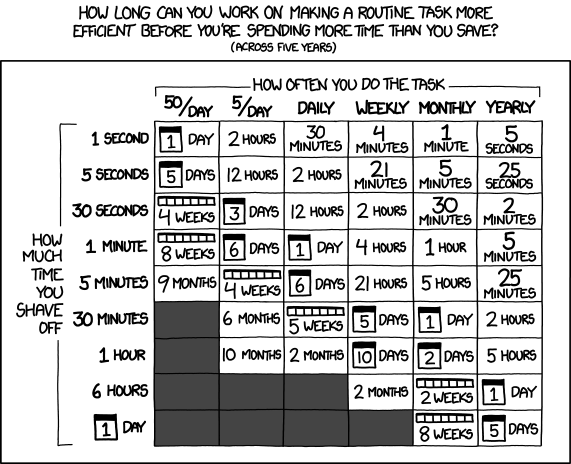The answer to this question really boils down to one thing: Money.
Begin first by understanding that the ultimate goal of any corporate operation (any company) is to have as much income as possible and as few liabilities as possible, so that your net income over any given time period is maximized. That is the primary goal of any company, and any other considerations run secondary to that goal.
In that context, what you are asking is, you have an ugly, long, difficult process which is very time consuming and you would like to streamline it. Problem is, your company's income comes from billable hours. The more time it takes to do any task, the more money the company makes. The company is incentivized by the terms of the contract to make every procedure, no matter how small, as long, difficult, and painstaking as it possibly can, to milk those billable hours out of the client. So what you're essentially asking is, "can I make my job more enjoyable at the cost of a 20x decrease in income to the company (by reducing the time for this task from 1 hour to 5 minutes)?", and the answer to that, of course, is a resounding HELL NO. The company wants money, if your solution costs the company money, they're going to kaibosh it right out of the gate.
The way to solve this problem is to think of a reason why the company would want to accept your proposal. Honestly, I can't think of any. The customer is happy paying for these billable hours, management is happy paying you to do the work, and the money comes raking in every pay cycle. There's no reason to change this procedure, from a management perspective.
The "problem", such as it is, is what happens when the customer wises up and realizes you're charging them 1 hour for a task which should only take 5 minutes. In short, what happens when the customer audits your processes. That's not going to be a good look for the company when the customer hires some outside audit firm to come in and be like "oh, you could be charging the customer 20x less for this work, why are you ripping them off?". But, it seems, the customer is not interested in such a procedure, and management isn't interested in covering themselves against such a circumstance.
The problem for you, here, is that if you work for a company which uses inefficient, outdated processes, you won't learn new things, and you'll spend an inordinate amount of time doing boring, painstaking work. The situation isn't going to change, so if you're not satisfied with the situation then you should find a new job.

